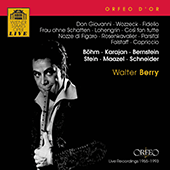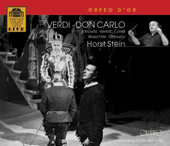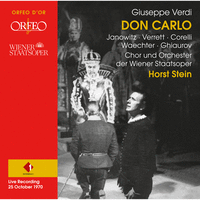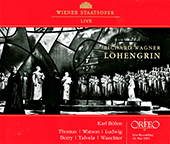Martti Talvela
The eighth of ten children to be born into a family of farmers and amateur singers, Talvela earned his first singing fee when only five. Growing to an eventual height of six feet eight inches, making him one of the tallest singers of the twentieth century, he initially trained as a boxer, which was to prove to be valuable experience in terms of stamina. He then studied to become a primary school teacher in Savonlinna between 1952 and 1956, going on to teach at three schools between 1957 and 1960.
Talvela’s interest in opera having been sparked by hearing the Russian bass Ivan Petrov sing the title role in Boris Godunov, he entered the Lahti Academy of Music in 1958 to study singing formally with Taunokaivela. After winning first prize in a song competition held in Helsinki at the beginning of 1960 he continued his vocal studies with Carl Martin Öhman in Stockholm. He made his debut with the Royal Swedish Opera in 1961 as Sparafucile / Rigoletto and developed a parallel career as a song recitalist, becoming a champion of the songs of Sibelius and Kilpinen.
Wieland Wagner heard one of Talvela’s early performances and invited him to participate in the Bayreuth Festival of 1962, singing Titurel / Parsifal (a role he also sang at the 1965 Festival). He returned to Bayreuth often, singing the Landgrave / Tannhäuser (1964–1966), Fasolt / Das Rheingold and Hunding / Die Walküre (1965–1967), King Mark / Tristan und Isolde (1966–1970) and Daland / Der fliegende Holländer (1969–1970). Talvela also joined the Deutsche Oper, Berlin in 1962 and was appointed a Kammersänger of the company in 1970.
His international career developed quite quickly and by 1965 he had made his debuts at La Scala, Milan and the Vienna State Opera. He made his first appearance at the Salzburg Festival in 1968 as the Commendatore / Don Giovanni; later Salzburg roles included Sarastro / Die Zauberflöte (1978–1984) and Osmin / Die Entführung aus dem Serail (1980–1981). He also gave several song recitals at the festival. In London he first sang with the Royal Opera Company in 1970 as Fasolt, Hunding and Hagen / Der Ring des Nibelungen; then Dosifey / Khovanshchina (1972) and finally Gurnemanz / Parsifal (1973) with Jascha Horenstein conducting.
In the autumn of 1968 Talvela made his American debut with a song recital at Hunter College, New York, followed soon after by his debut at the Metropolitan Opera, New York as the Grand Inquisitor / Don Carlo. He sang regularly at the Met, appearing as Hunding and Fasolt (1968–1969), the title role of Boris Godunov (1974–1975), Padre Guardiano / La forza del destino and Prince Gremin / Eugene Onegin (1977), Kecal / The Bartered Bride (1978), Gurnemanz (1979), Sarastro (1981), Osmin (1982), King Mark (1984) and Dosifey (1985), followed by further performances of Parsifal and Boris with his final appearance at the Met coming in 1988 as Dosifey. The New York Times hailed his interpretation of Boris Godunov in 1987 as ‘the Boris of his generation’. Other opera companies in America with which Talvela appeared were the Chicago Lyric Opera (Daland, 1969) and the Los Angeles Opera (King Mark, 1987).
Talvela became the first artistic director of the Savonlinna Festival in 1972 and held this post until 1979. During this period he became a major influence in Finnish music, commissioning new works and performing standard repertory in Finnish: for instance in 1975 he created (and later recorded) the part of Paavo Ruotsalainen in The Last Temptations by Joonas Kokkonen. He was awarded the Pro Finlandia Award and the Finnish State Prize in 1973.
During the following year Talvela made his debut at the Paris Opera, going on to achieve great success there as Boris in 1987. For the final years of his life, from 1981 to 1989, he worked as a farmer in Juva, Eastern Finland, while also remaining active as a singer, performing a limited number of operatic roles and appearing in recital. After being diagnosed with diabetes in 1975 his health began to decline and he died while dancing at his daughter’s wedding. Shortly before his death he had been appointed director of the Finnish National Opera.
He possessed a voluminous bass voice, with an easy and extensive range, that was characterized by rich and generous tone. His impressive stature gave him immediate presence on stage, which was enhanced by his natural dignity.
© Naxos Rights International Ltd. — David Patmore (A–Z of Singers, Naxos 8.558097-100).




















